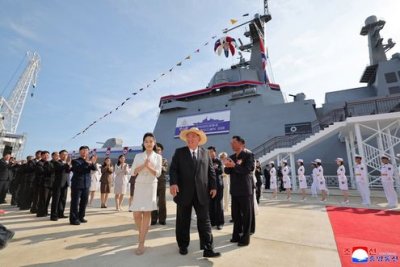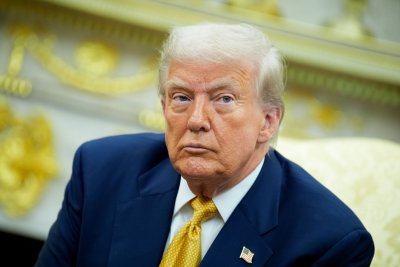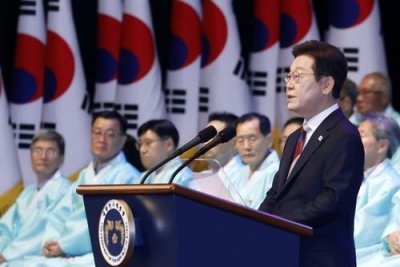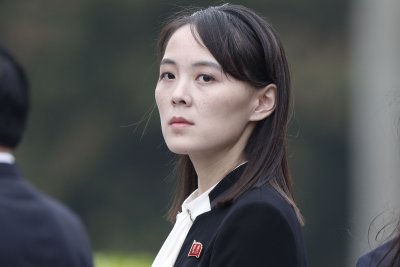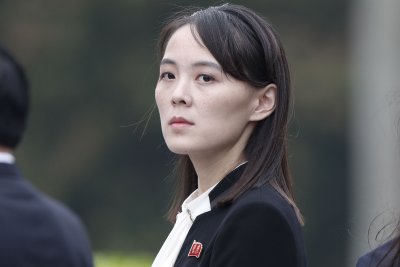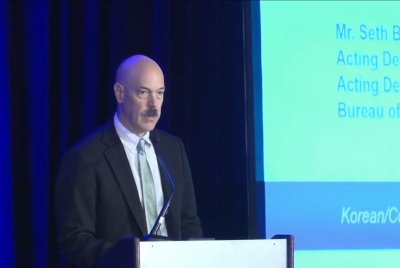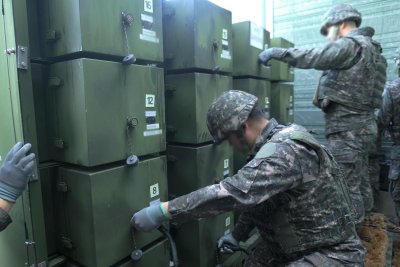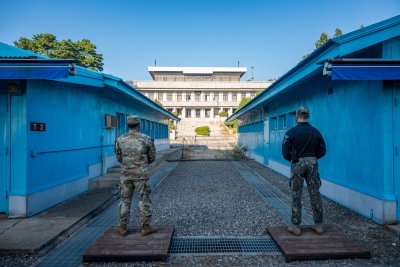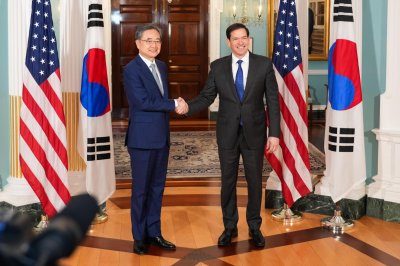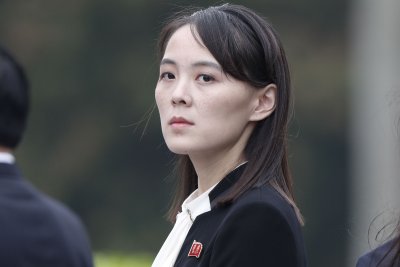Kim Jong Un’s sister says South Korea will never be a diplomatic partner
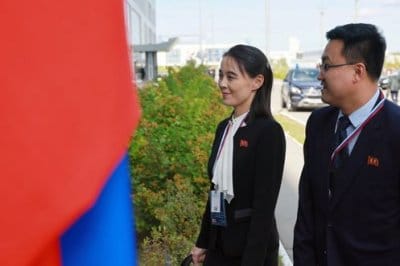
Kim Yo Jong (L), the sister of North Korean leader Kim Jong Un, said South Korea would never be a diplomatic partner, stare media reported Wednesday. She is seen here in Tsiolkovsky, Russia, during a state visit in 2023. File Kremlin Pool Photo by Vladimir Smirnov/Sputnik/EPA
SEOUL, Aug. 20 (UPI) — North Korean leader Kim Jong Un‘s influential sister repeated her dismissal of Seoul’s outreach efforts, state media reported Wednesday, saying that South Korea “cannot be a diplomatic partner.”
Kim Yo Jong “sharply criticized the essence of the deceptive ‘appeasement offensive'” by the administration of South Korean President Lee Jae Myung, state-run Korean Central News Agency said.
“We have witnessed and experienced the dirty political system of the ROK for decades,” Kim told North Korean Foreign Ministry officials during a meeting on Tuesday, using the official acronym for South Korea.
“The ambition for confrontation with the DPRK has been invariably pursued by the ROK, whether it held the signboard of ‘conservatism’ or wore a mask of ‘democracy,'” Kim said.
The Democratic People’s Republic of Korea is the official name of North Korea.
Kim’s remarks come as the United States and South Korea are holding their annual summertime Ulchi Freedom Shield joint military exercise. The 11-day exercise began Monday and includes live field maneuvers, computer simulation-based command post exercises and related civil defense drills. Some 21,000 troops, including 18,000 South Korean personnel, are participating this year.
President Lee has stressed that the drills are defensive in nature and has made a series of overtures to North Korea since taking office in June in an effort to improve strained ties.
In a speech Friday marking the 80th anniversary of Korea’s liberation from Japanese colonial rule, Lee vowed to “respect” North Korea’s political system and said Seoul would not pursue “unification by absorption.”
“We have no intention of engaging in hostile acts,” Lee said. “Going forward, our government will take consistent measures to substantially reduce tensions and restore trust.”
Kim called Lee’s defensive characterization of the joint military exercise “gibberish” and said his administration’s “stinky confrontational nature is swathed in a wrapper of peace.”
“Lee Jae Myung is not the sort of man who will change the course of history,” she added.
The Blue House, South Korea’s presidential office, responded to Kim’s comments Monday, calling them “regrettable.”
“The Lee Jae Myung administration’s preemptive measures for peace on the Korean Peninsula are not self-serving or for the benefit of one side, but rather are for the stability and prosperity of both South and North Korea,” the office said in a statement. “It is regrettable that North Korean officials are misrepresenting and distorting our sincere efforts.”
Kim Yo Jong has made multiple public statements in recent weeks dismissing Seoul’s rapprochement efforts, which include removing its anti-Pyongyang propaganda loudspeakers from border areas inside the DMZ.
North Korean leader Kim Jong Un on Monday said the U.S.-South Korea joint military exercise demonstrated the allies’ “will to ignite a war” and called for the rapid expansion of Pyongyang’s nuclear capabilities

